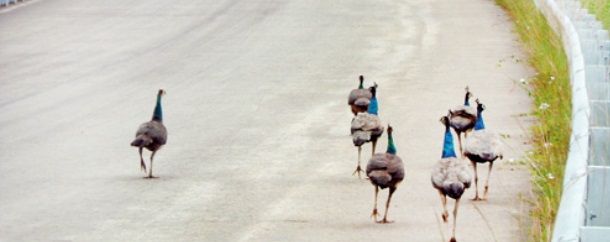
[Hundreds if not thousands of peacocks pose a serious threat to airline traffic at the Mattala Rajapaksa International Airport]
 31/03/2015
31/03/2015
This remote coastal scrubland, a haven for wild elephants and migratory birds that is several hours away from the nearest city, seems like an odd place to attempt to create a major commercial hub..
Yet such was the whim of former President Mahinda Rajapaksa, a local son who, thanks to Chinese loans, poured immense sums into pet projects during the decade he held this island nation in his grip.
Since he was voted out of office in January, Rajapaksa’s extravagant spending in his home district, much of it named for himself, looks ever more like monuments to folly.
A giant Indian Ocean harbor being blasted out of the island’s southern shoreline has seen costs soar well past $1 billion, and officials say it is unlikely to break even for years. A $210-million international airport built two years ago has hundreds of employees but receives just a handful of passengers a day.
Sri Lankan president admits election defeat; challenger sworn in
The 35,000-seat Mahinda Rajapaksa International Cricket Stadium and a new convention center are rarely used, as are miles of expansive new highways that see little traffic apart from the occasional herd of cattle.
“It’s a crying shame how much money was spent,” said Harsha de Silva, deputy minister for policy planning and economic affairs in Sri Lanka’s new government. “Why is an airport in the middle of nowhere? Why are you building a road to the middle of nowhere?”
It’s not as if Sri Lankans didn’t ask those questions before, but under Rajapaksa’s increasingly despotic administration, dissent was ignored or punished. After his narrow and surprising election defeat, the country of 20 million is waking up to the excesses of his rule with what appears to be a collective hangover.
SriLankan Airlines, the deeply indebted national carrier, announced that it would cease operating from Mattala Rajapaksa International Airport in the town of Mattala, north of Hambantota. The twice-daily flights were losing the airline $8 million a year, company officials said.
New President Maithripala Sirisena has ordered a review of all of Rajapaksa’s projects – and it is a long list. To cement the government’s victory in a 26-year civil war against northern Tamil rebels, Rajapaksa embarked on a $6-billion spending binge on infrastructure projects starting in 2009.
More than two-thirds of the projects, including the port and airport at Hambantota, were financed by Chinese banks at interest rates as high as 6.3% annually, several times what other lenders offered, and did not go through open bidding processes, officials say. Authorities are investigating whether contracts were padded to benefit members of Rajapaksa’s government, which included more than two dozen members of his extended family. No charges have been filed.
“It’s a crying shame how much money was spent. Why is an airport in the middle of nowhere? Why are you building a road to the middle of nowhere?”
– Harsha de Silva, deputy minister for policy planning and economic affairs in Sri Lanka
In the meantime, finance officials are exploring ways to restructure the Chinese loans. Government lawyers are poring over contracts, trying to scale back some projects that haven’t yet begun, such as a 500-acre development on reclaimed land in the capital, Colombo, where the ex-president envisioned luxury high-rises and a Formula One racetrack.
To Rajapaksa, the projects were powerful symbols of Sri Lanka’s expansion from a small, war-ravaged economy to one of the fastest growing in South Asia.
He and members of his family did not respond to requests for comment. In an interview this month with the South China Morning Post, he defended his actions.
“I wanted development for Sri Lanka and China was the only one which had the resources and the inclination to help me,” Rajapaksa said.
Sri Lanka was so unfortunate for not to get the service of Mahinda Rajapakse for a another term being the leader of the country. Had he been there for another 5 years or 10 years, Sri Lanka would have been truly a miracle of South Asia with very high living standards and per capita income for…
Opponents counter that he built by fiat, bypassing environmental studies and economic assessments, and that China, seeking to boost its influence on the doorstep of rival India, took advantage of his haste.
“They were vanity projects for Rajapaksa, plain and simple, and China was quite happy to nurture his vanity,” said Paikiasothy Saravanamuttu, executive director of the Center for Policy Alternatives, a think tank in Colombo.
Business leaders in Hambantota said they were never consulted about the giant structures that began proliferating in their district like mushrooms after a monsoon.
A predominantly fishing and farming area that is still recovering from damage sustained in the 2004 Indian Ocean tsunami, Hambantota historically has been one of the poorer pockets of the country.
Airplane tickets and use of the convention center, as well as a five-star hotel planned for the port complex, are out of the financial reach of most residents, raising questions about their long-term viability.



 Another ex-LTTE cadre, who had also surrendered to the army in May 2009 has contacted one of his relatives from this Keppapulavu secret camp and informed that about 50 people were being held in the camp.
Another ex-LTTE cadre, who had also surrendered to the army in May 2009 has contacted one of his relatives from this Keppapulavu secret camp and informed that about 50 people were being held in the camp.

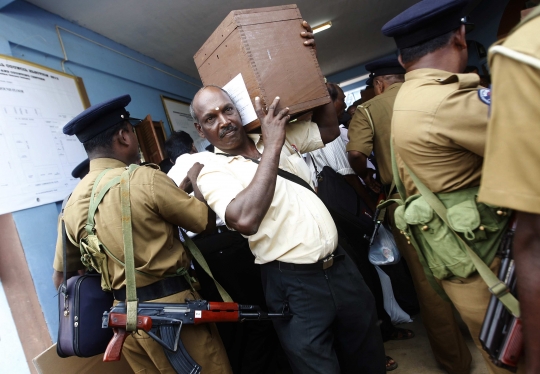




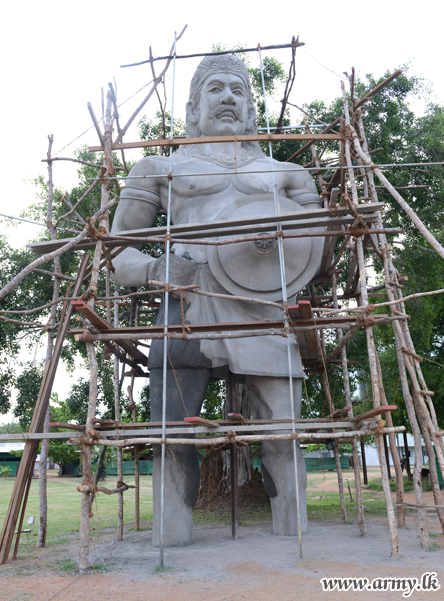
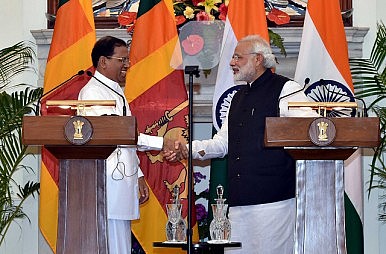




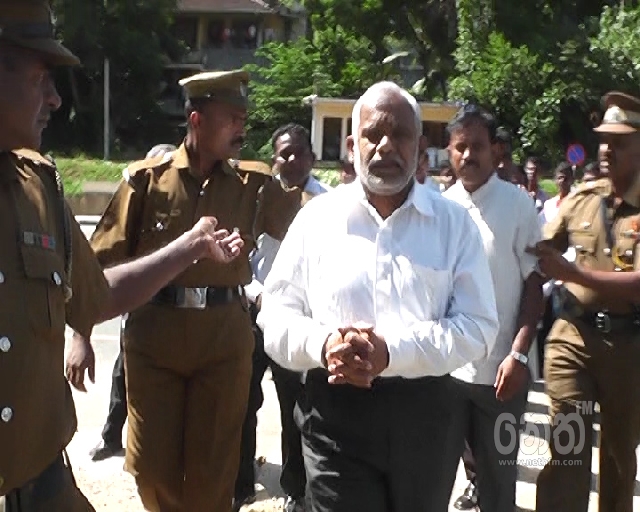





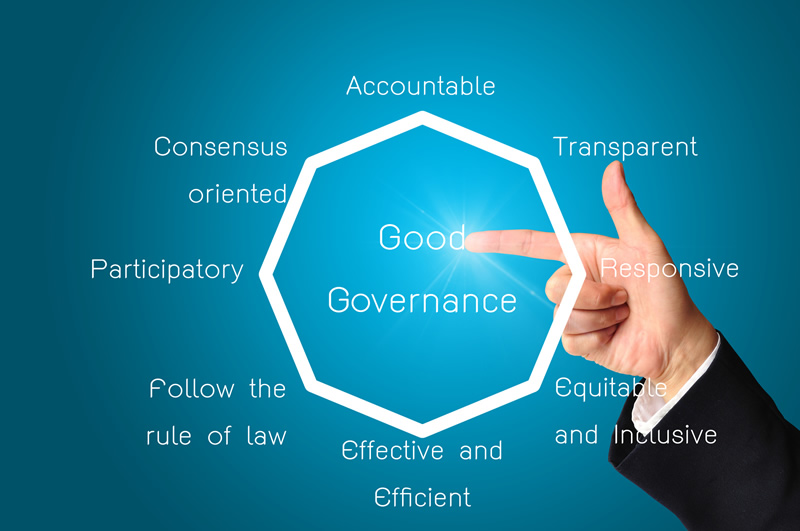
.jpg)


